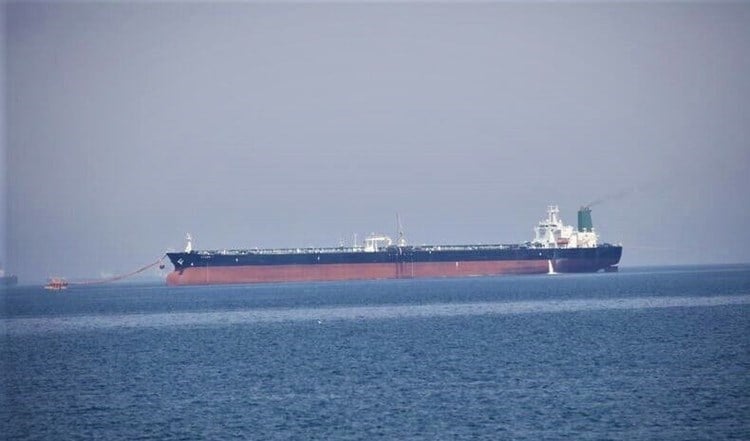Iran seizes foreign tanker carrying smuggled fuel
The forces of the second region of the Revolutionary Guards Navy inspected and then seized Nada II - a Tanzania-flagged chemical tanker carrying smuggled fuel, as per Iranian naval forces
-

An undated image of an oil tanker (File Photo)
The Naval Forces of the Islamic Revolution Guard Corps announced that its forces seized on Thursday a foreign oil tanker carrying one million liters of smuggled oil.
IRGC 2nd Naval District Commander Ramezan Zirahi detailed that the US forces tried to prevent the legal action and made reckless and ill-conceived moves, stressing that a US fighter jet and a drone flew over the waters, and speedboats were sent to prevent the seizure of the ship.
On July 6, the forces of the second region of the IRGC Navy inspected Nada II -- a Tanzania-flagged chemical tanker carrying smuggled fuel, Zirahi stated.
The Iranian naval commander went on to say that during the inspection and seizure of the smuggled fuel shipment, the IRGC's naval forces learned that a US official ordered the captain to turn off the engine and wait for US forces to arrive for help.
Despite it all, according to Brigadier General Zirahi, the tanker was seized and sent to the port of Bushehr in southern Iran so that legal action could be taken against it.
On his account, Brigadier General Zirahi described the US's attempt to transport ships filled with smuggled oil into the Gulf seas as "illegal and improper" and asserted that it is not an isolated incident.
Additionally, he said that the Americans frequently provided military assistance for oil smuggling ships and tankers in the Gulf and assisted those ships in fleeing by deploying warplanes and patrol boats.
Brigadier General Zirahi recalled that the Americans were forced back in November 2021, during a complex operation in the Sea of Oman, to flee the area "humiliated" with 5 military frigates, a number of fighters, helicopters, and manned and unmanned aircraft.
This is happening just a few days after an Iranian military source denied allegations made by the US Navy that Iran attempted to seize two oil tankers near the Strait of Hormuz and that the US forces prevented it.
At the time, the Pentagon issued a statement claiming that US forces prevented two separate attempts by Iran's Navy to seize two commercial oil tankers in international waters off the coast of Oman, alleging that in one of these attempts, the Iranian forces opened fire toward the tanker.
Read more: Iran Navy blocks US aircraft from entering airspace
The US Central Command CENTCOM claimed that an Iranian vessel tried to seize a Marshall Islands-flagged tanker TRF Moss near the Gulf of Oman, and after about three hours, the vessel tried to seize the tanker Richmond Voyager that flies the flag of the Bahamas.
About a fifth of global shipments of crude oil and petroleum products pass through the Strait of Hormuz, according to data from analytics firm Vortexa.
Since the beginning of this year, Iran has seized several oil tankers for violating international standards and navigation laws.
Read more: IRGC Navy announces naval maneuver in support of Palestine
Last June, the UAE announced its withdrawal from its participation in the US-led Middle East Maritime Security Alliance in the Gulf as a result of an assessment of its security ties.
Following the Gulf country's announcement, Iranian Navy Commander Rear Admiral Shahram Irani revealed that Iran's navy and regional countries, including Saudi Arabia, UAE, Qatar, Bahrain, India and Iraq will establish a new naval coalition in the near future.
He added then that the aforementioned countries have acknowledged that intra-regional cooperation can establish regional security.
Irani highlighted that almost all of the countries in the North Indian Ocean region have agreed to stand by Iran and exert strained efforts to establish security with significant synergy.
The United States conveyed dismay over the announcement, as it sees that its 5th fleet situated in Bahrain will become at risk if the naval bloc was formed.
Commenting on the admiral's statement, the US 5th Fleet and Combined Maritime Forces Spokesperson Commander Tim Hawkins considered then that "it defies reason".
“It defies reason that Iran, the number one cause of regional instability, claims it wants to form a naval security alliance to protect the very waters it threatens,” Hawkins said as quoted by Breaking Defense.

 4 Min Read
4 Min Read








